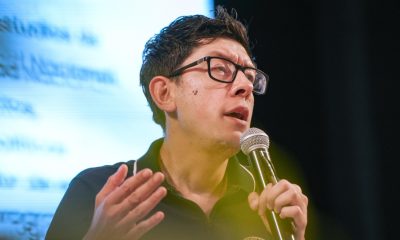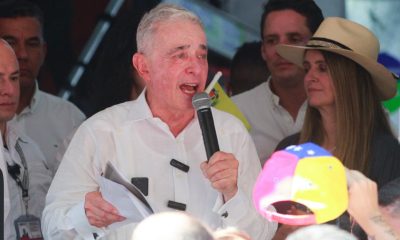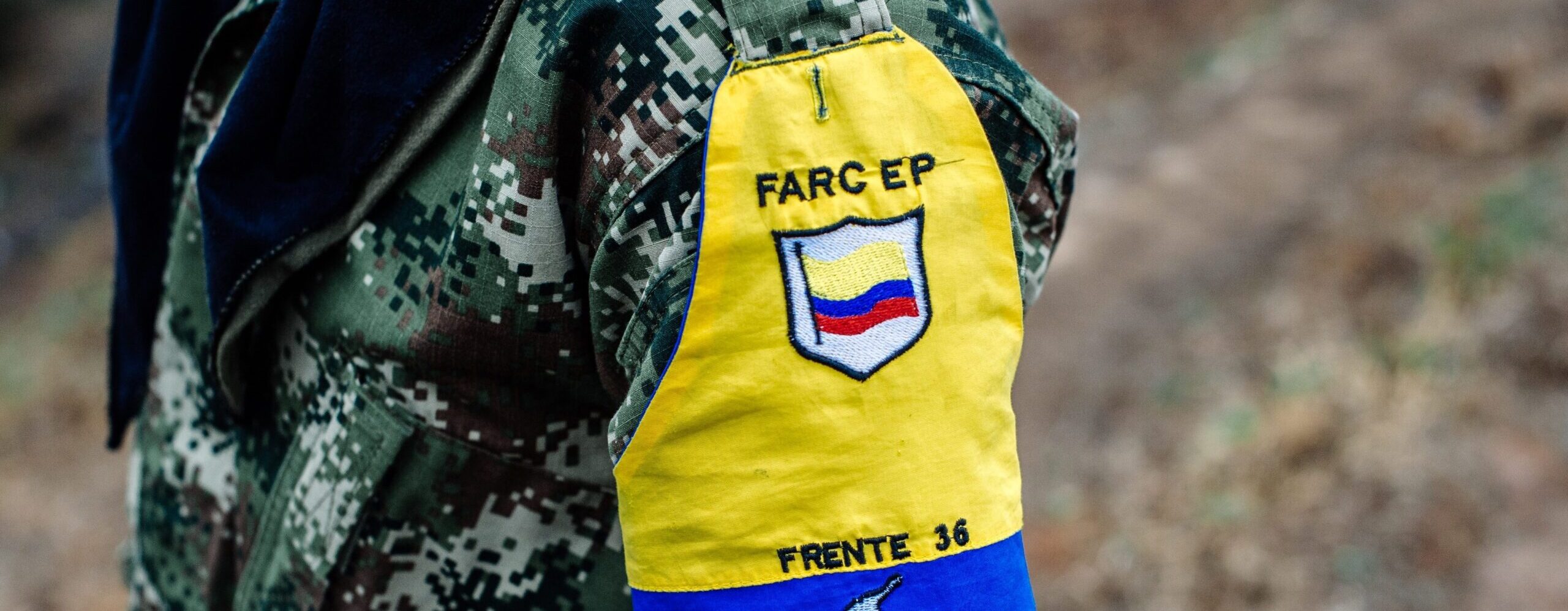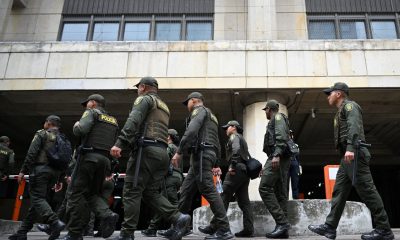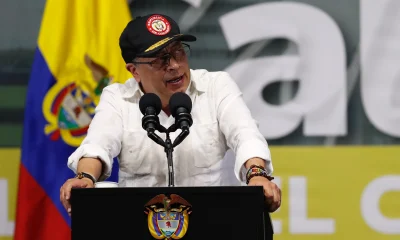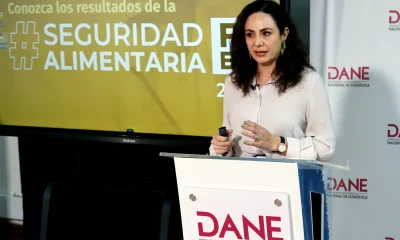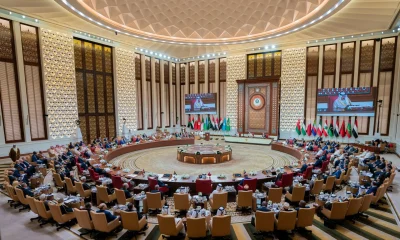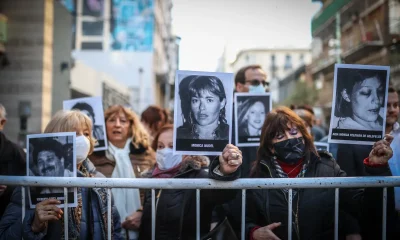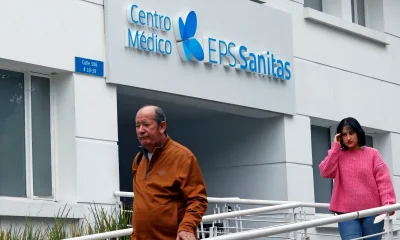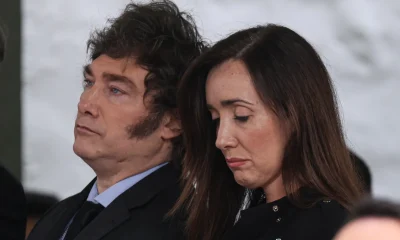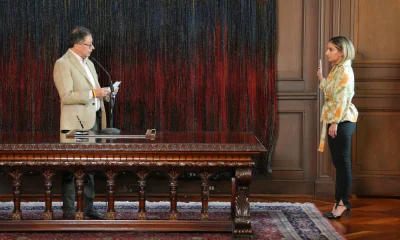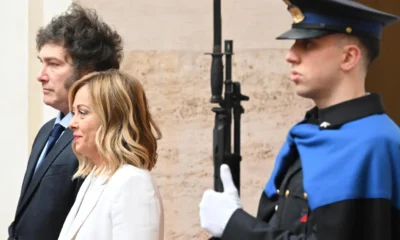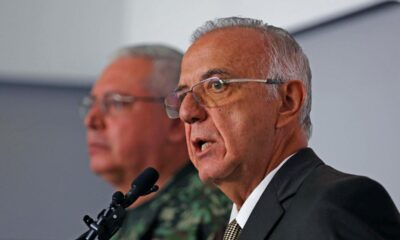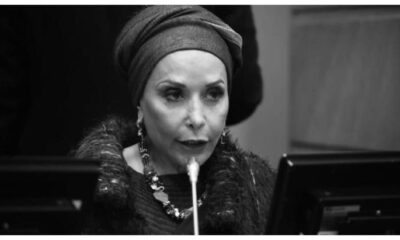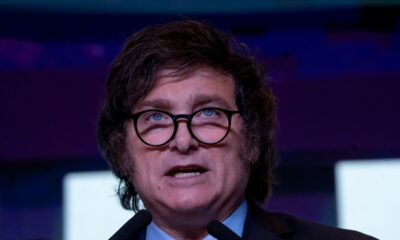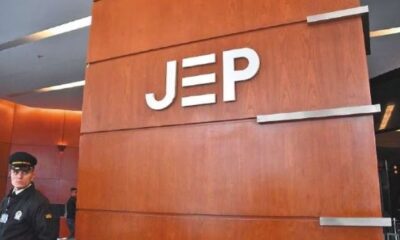International
Foreign ministers of Colombia and Argentina settle crisis and open a “new moment” in the relationship
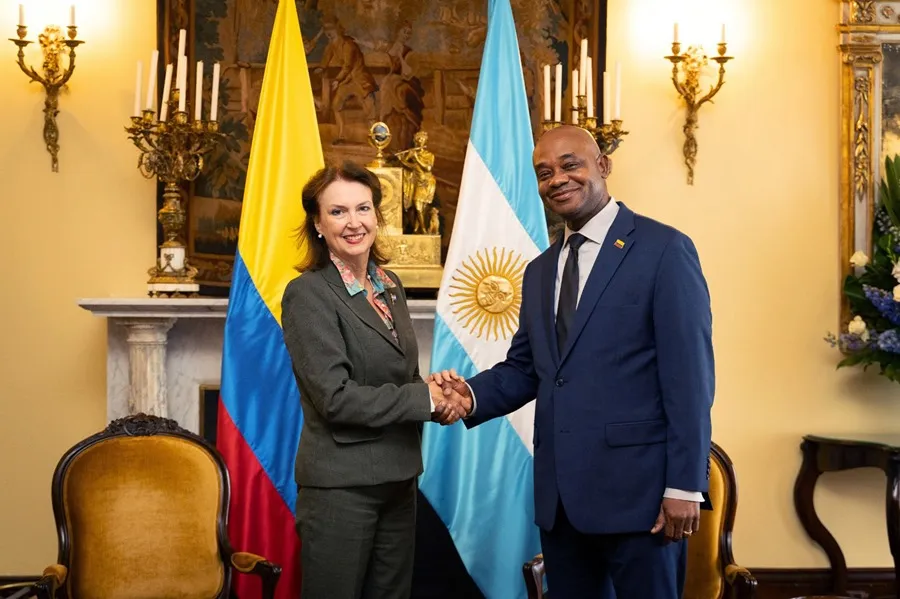
The chancellor in charge of Colombia, Luis Gilberto Murillo, and his Argentine counterpart, Diana Mondino, met in Bogotá to settle the diplomatic crisis caused by the repeated offenses of President Javier Milei to his counterpart Gustavo Petro and start a “new moment” of the bilateral relationship.
The meeting took place at the Palacio de San Carlos, headquarters of the Foreign Ministry, where Murillo and Mondino shook hands after three months of diplomatic tensions.
“It was a very productive meeting where we found areas of collaboration in different sectors; cooperation on security issues, cooperation on commercial issues, economic development and, above all, reaffirming our areas of understanding,” said the Colombian minister.
Murillo added that there is “a very close relationship between Colombia and Argentina and this is a new moment in the relationship that we want to maintain in very pragmatic terms and for the benefit of both countries, both peoples and both nations.”
The meeting was behind closed doors but in photos released by the Colombian Foreign Ministry, the two foreign ministers are smiling and accompanied by other officials.
The meeting began at noon and in it Murillo and Mondino discussed issues such as bilateral trade, tourism, cooperation, security and business development, among others.
According to the Ministry of Foreign Affairs, “Colombia has a special interest in expanding the commercial agenda with Argentina in tourism and sustainable development,” while stressing that the two countries have “a strong cooperation relationship on defense issues.”
During her visit to Bogotá, the chancellor also met with the special representative of the UN Secretary-General in Colombia, Carlos Ruiz Massieu, and plans to meet with the head of the OAS Peace Process Support Mission in Colombia (MAPP/OAS), Roberto Menéndez.
Two weeks ago, when announcing Mondino’s visit, the Colombian ambassador to Buenos Aires, Camilo Romero, assured that the purpose was to “renew the bonds of friendship that have united us for more than 200 years,” since “the affection, affection and brotherhood of our peoples must always be superior.”
Romero had been called to consultations in Bogotá on January 26, after Milei assured, in an interview with journalist Patricia Janiot, that the Colombian president “is a murderous communist who is sinking” the country.
That was the first chapter of the quarrel between the two Governments over Milei’s statements, who a month later, on February 24, referred to Petro as “a lethal plague for the Colombians themselves,” in response to a question from a journalist from the NTN24 channel, which caused a “energic rejection” by the Foreign Ministry of Bogotá of what he called “irresponsible statements” of the Argentine president.
The straw that broke the camel’s eye was the interview given on March 26 by Milei to the CNN en Español channel in which he called Petro a “terrorist murderer.”
What motivated the announcement of the expulsion of diplomats from the Argentine embassy in Colombia, a drastic measure that was not implemented.
On March 31, in a joint statement, the Argentine and Colombian Foreign Ministries said that they had held talks to “strengthen diplomatic relations,” a gesture that indicated that the waters had calmed down and that today’s meeting confirms that normality has returned.
After this Friday’s meeting, Romero assured that what happened “should never have happened,” but “the Governments, the Foreign Ministries have done a great job, the voice of diplomacy has been imposed on that of insults.”
Romero added that today’s meeting “whe does is honor the past: 201 years of relations between the two countries and of course strengthen that bond, that bond (…) for the well-being of the people and the well-being of the citizenry.”
“This shows how to solve conflicts, something very necessary in today’s world,” said the Colombian ambassador in Buenos Aires.
International
Dominican ‘False Hero’ Arrested for Faking Role in Nightclub Collapse That Killed 231

A man identified as Rafael Rosario Mota falsely claimed to have rescued 12 people from the collapse of the Jet Set nightclub in Santo Domingo—a tragedy that left 231 people dead—but he was never at the scene.
Intelligence agents in the Dominican Republic arrested the 32-year-old man for pretending to be a hero who saved lives during the catastrophic incident, authorities announced.
Rosario Mota had been charging for media interviews in which he falsely claimed to have pulled survivors from the rubble after the nightclub’s roof collapsed in the early hours of April 8, during a concert by merengue singer Rubby Pérez, who was among those killed.
“He was never at the scene of the tragedy,” the police stated. The arrest took place just after he finished another interview on a digital platform, where he repeated his fabricated story in exchange for money as part of a “media tour” filled with manipulated information and invented testimonies.
“False hero!” read a message shared on the police force’s Instagram account alongside a short video of the suspect, in which he apologized: “I did it because I was paid. I ask forgiveness from the public and the authorities.”
Central America
Nicaraguan Exiles to Mark 7th Anniversary of 2018 Protests with Global Commemorations

The Nicaraguan opposition in exile announced on Thursday that it will commemorate the seventh anniversary of the April 2018 protests against the government of President Daniel Ortega and his wife, Rosario Murillo, with events in Costa Rica, the United States, and several European countries.
The commemorative activities—which will call for justice for the victims, as well as freedom and democracy for Nicaragua—will include religious services, public forums, cultural fairs, and other public gatherings, according to official announcements.
In April 2018, thousands of Nicaraguans took to the streets to protest controversial reforms to the social security system. The government’s violent response quickly turned the demonstrations into a broader call for the resignation of President Ortega, who is now 79 and has been in power since 2007.
The protests resulted in at least 355 deaths, according to the Inter-American Commission on Human Rights (IACHR), although Nicaraguan organizations claim the toll is as high as 684. Ortega has acknowledged “more than 300” deaths and maintains the unrest was an attempted coup d’état.
International
Arsenal stun Real Madrid at the Bernabéu to reach Champions League semifinals

Arsenal enjoyed a “historic night” on Wednesday after defeating Real Madrid 2-1 at the Santiago Bernabéu, knocking them out of the Champions League quarterfinals, midfielder Declan Rice said.
“It’s such a special night for this club, a historic night for this club,” said Rice, who scored twice in the first leg in London, speaking to TNT Sports.
The English international was named Man of the Match in both legs — the 3-0 win in London and the second leg in Madrid.
“It’s amazing. I knew we were on an upward trajectory and we’ve done incredibly well in this competition. We deserve it and we have full confidence in our coach. Reaching the semifinals is unbelievable,” Rice added.
-

 International5 days ago
International5 days agoNightclub Collapse in Dominican Republic Claims 226 Lives
-
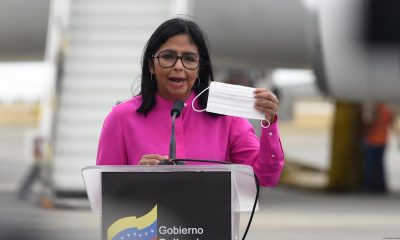
 International5 days ago
International5 days agoVenezuela accuses Guyana of “warlike intentions” after UK defense deal
-

 Central America3 days ago
Central America3 days agoHonduran Police Offer $135K for Tips Leading to the Arrest of Romeo Vásquez
-

 Central America2 days ago
Central America2 days agoPetro questions Ecuador’s vote, cites reports of military control and arrests
-

 International3 days ago
International3 days agoMPV Denounces Electoral Blockade as Secretary-General is Disqualified for May Elections
-

 International1 day ago
International1 day agoArsenal stun Real Madrid at the Bernabéu to reach Champions League semifinals
-

 International3 days ago
International3 days agoMaduro Plans Major Workers’ March on May 1st to Defend Venezuela’s Freedom
-

 International1 day ago
International1 day agoBogotá residents line up for yellow fever vaccine amid national alert
-

 International1 day ago
International1 day agoMexico refuses to restore ties with Ecuador while Noboa remains in office
-

 International1 day ago
International1 day agoDeSantis’ immigration crackdown sparks alarm in Venezuelan Communities in Doral
-

 International2 days ago
International2 days agoColombia: Search continues for missing limb of italian scientist found dismembered
-

 International8 hours ago
International8 hours agoDominican ‘False Hero’ Arrested for Faking Role in Nightclub Collapse That Killed 231
-

 Central America8 hours ago
Central America8 hours agoNicaraguan Exiles to Mark 7th Anniversary of 2018 Protests with Global Commemorations




















